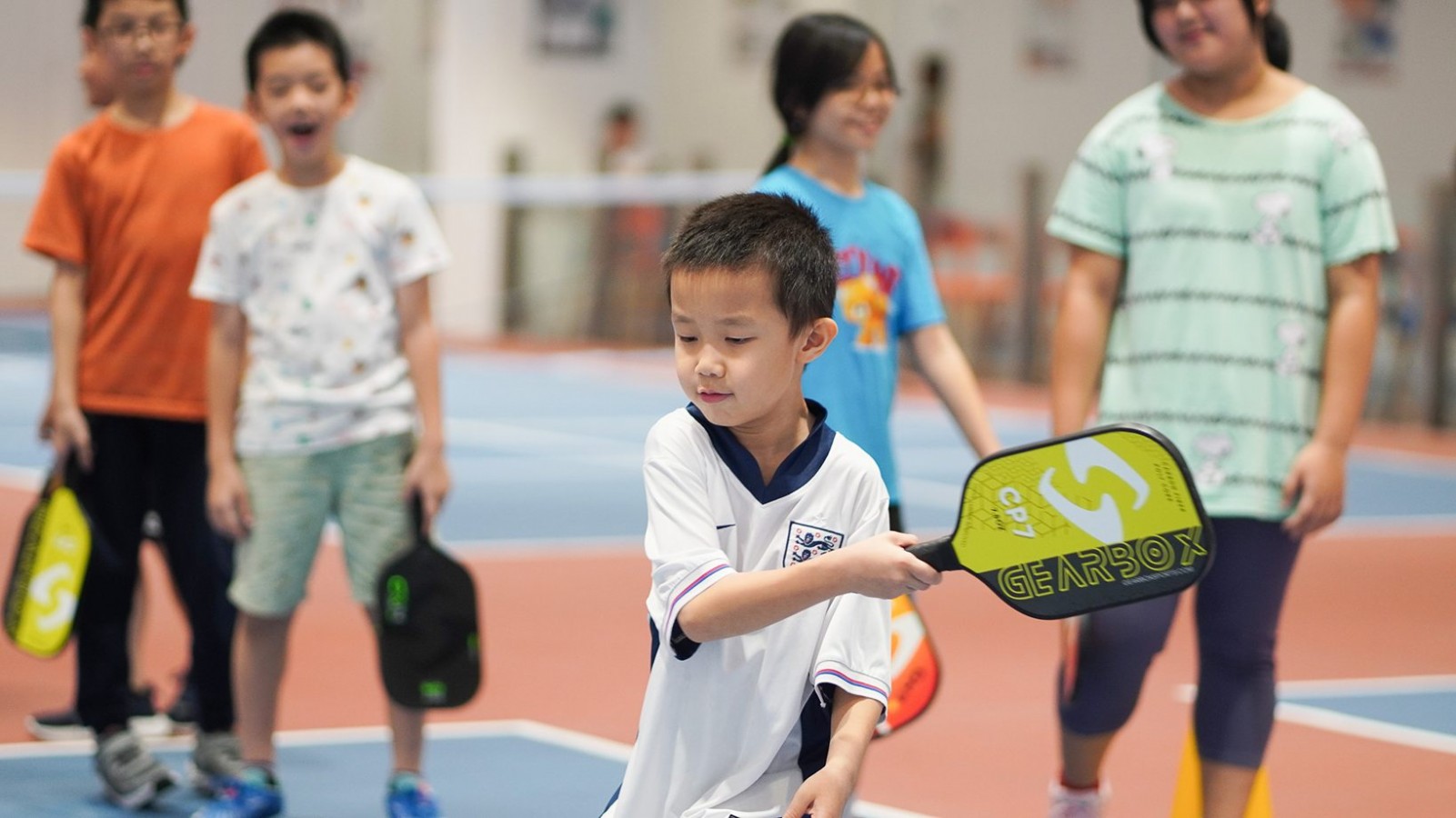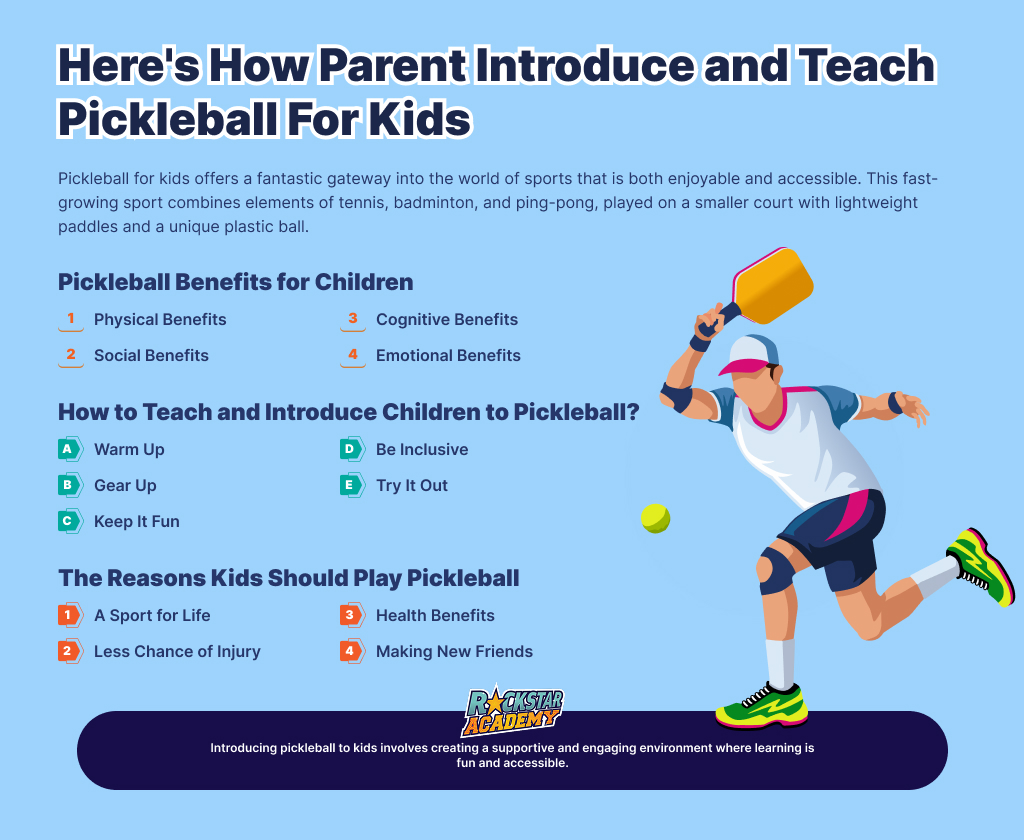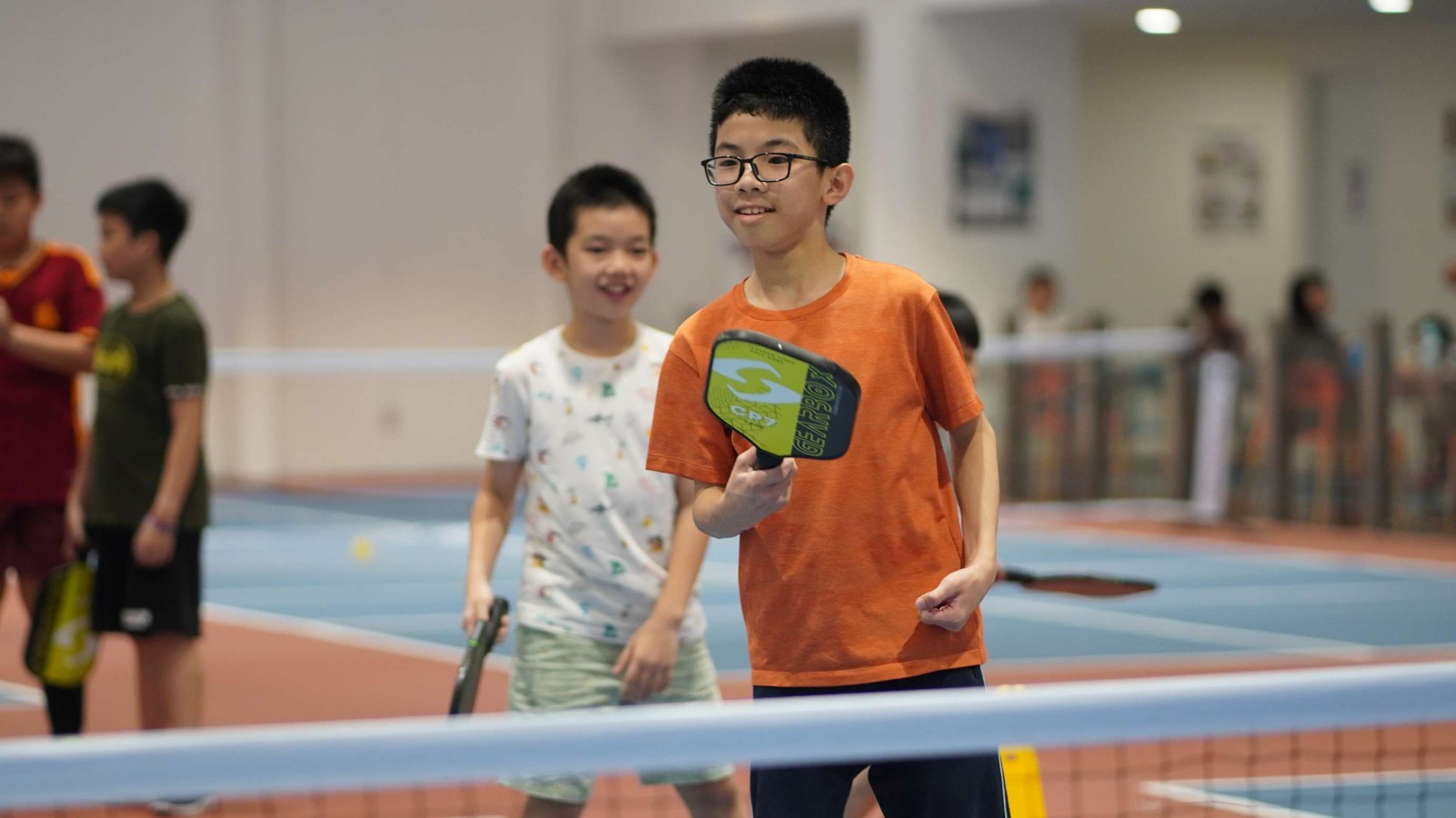Here's How Parent Introduce and Teach Pickleball For Kids

Pickleball for kids offers a fantastic gateway into the world of sports that is both enjoyable and accessible. This fast-growing sport combines elements of tennis, badminton, and ping-pong, played on a smaller court with lightweight paddles and a unique plastic ball.
For parents looking to introduce their kids to this enjoyable activity, understanding the basics and fostering a supportive learning environment are crucial steps. In this article, we delve into the exciting world of pickleball for kids, exploring how parents can introduce and teach this increasingly popular sport to their children.
Pickleball Benefits for Children
Pickleball offers many benefits tailored specifically for children, making it an ideal sport for their physical and social development. These benefits underscore why pickleball is not just a game but a valuable activity for children of all ages and abilities. Here are several benefits for children to play pickleball:
1. Physical Benefits
Pickleball significantly enhances children's physical fitness. The sport improves coordination and mobility through its dynamic movements and quick reflexes, fostering better balance and agility.
Additionally, pickleball offers a cardiovascular workout, promoting heart health and overall physical endurance, which is vital for a growing child's development.
2. Social Benefits
Playing pickleball provides an excellent platform for children to develop their social skills.
The sport emphasizes teamwork and communication, as players must collaborate and strategize with their partners.
This interaction helps children form friendships and build a sense of community, enhancing their social well-being.
3. Cognitive Benefits
Pickleball challenges children cognitively, requiring them to think strategically and make quick decisions during play. This mental engagement sharpens their focus and enhances their decision-making abilities.
This contributes to cognitive development and better problem-solving skills in children.
4. Emotional Benefits
Engaging in pickleball can have a positive impact on children's emotional health. The sport boosts confidence as children master new skills and achieve personal goals.
It also serves as a stress-reliever, providing a fun and joyful outlet for energy and emotions. The overall experience of playing pickleball brings a sense of joy and accomplishment, contributing to a child's emotional well-being.
How to Teach and Introduce Children to Pickleball?
Introducing children to pickleball can be a fun and rewarding experience for both parents and kids. To ensure a smooth and enjoyable learning process, it's essential to follow a structured approach that covers the basics while keeping the game engaging.
Here are some effective strategies to teach and introduce pickleball to children, helping them develop a love for this dynamic sport:
A. Warm Up
Before starting any pickleball session, it's crucial to have a proper warm-up to prepare the children physically and mentally. Begin with light aerobic exercises like jogging or jumping jacks to get their blood flowing.
Follow this with dynamic stretches, focusing on the arms, legs, and core, to increase flexibility and prevent injuries. Warming up not only readies their muscles but also gets them excited and focused for the game ahead.
B. Gear Up
Equip the children with the right gear to ensure a safe and enjoyable experience. They will need comfortable athletic clothing and supportive sneakers.
Provide them with appropriately sized paddles and lightweight pickleballs to make handling easier.
Teaching them the basics of the equipment, such as how to hold the paddle correctly and how to serve, is essential for building a strong foundation in the game.
C. Keep It Fun
The primary goal when introducing children to pickleball is to keep the experience fun and engaging. Incorporate playful drills and mini-games that focus on skill development while maintaining a light-hearted atmosphere.
Celebrate their successes, no matter how small, and offer positive reinforcement to keep their spirits high. Ensuring that the sessions are enjoyable will help foster a long-term interest in the sport.
D. Be Inclusive
Create an inclusive environment where children of all skill levels feel welcome and encouraged to participate. Mix up the groups to include people of different ages, skill levels, and backgrounds.
Organize friendly matches like parents versus kids to promote family bonding and make the games more interesting.
Encourage everyone to play, emphasizing teamwork and mutual support. Inclusivity ensures that every child feels valued and part of the group.
E. Try It Out
Finally, let the children try out what they've learned by playing actual games. Start with simple matches to apply the skills they've practiced in a real-game setting.
Gradually introduce more advanced techniques and strategies as they become more comfortable with the basics.
The hands-on experience of playing full games will help them understand the flow of the game, build confidence, and develop a genuine love for pickleball.
The Reasons Kids Should Play Pickleball
To convince you more, here are compelling reasons why kids should play pickleball:
1. A Sport for Life
Pickleball is a versatile and lifelong sport that children can enjoy well into adulthood. Its adaptability and ease of play make it suitable for all ages and skill levels, ensuring that kids can continue to play and benefit from the sport as they grow older.
2. Less Chance of Injury
Compared to many high-impact sports, pickleball has a lower risk of injury. The game is played on a smaller court with a slower-paced ball which reduces the likelihood of strain and accidents.
This makes it a safer option for children and allows them to play and learn without the constant worry of getting hurt.
3. Health Benefits
Pickleball offers numerous health benefits, including improved cardiovascular fitness, better hand-eye coordination, and enhanced flexibility.
Regular play helps children develop strong, healthy bodies, promoting overall physical well-being and laying a foundation for a healthy lifestyle.
4. Making New Friends
Playing pickleball provides a great opportunity for children to make new friends. The sport encourages social interaction and teamwork. This can help foster a sense of solidarity among players.
This social aspect helps kids build lasting friendships and develop strong interpersonal skills.
Ready to Introduce Your Kids to This Fun Sport?
Introducing pickleball to kids involves creating a supportive and engaging environment where learning is fun and accessible.
For those looking to introduce their children to the exciting world of pickleball, look no further than the Pickleball Class at Rockstar Academy. Our program combines expert instruction with engaging pickleball drills designed to enhance skills and technique, making learning both effective and enjoyable.
If your child is a beginner or looking to refine their game, our experienced coaches are committed to fostering their growth and passion for pickleball. Best of all, we offer a free trial of our Pickleball Program, allowing your child to experience the fun and benefits firsthand before committing.
Don’t miss this opportunity to introduce your child to a sport they’ll love at the best Sports & Performing Arts Academy!

FAQ
Can children play pickleball?
Yes, pickleball is a great sport for children. It's designed to be easy to learn, with smaller courts and slower balls that make it fun and safe for kids to play.
How to explain pickleball to kids?
Pickleball is like a mix of tennis and ping-pong. You use a paddle to hit a plastic ball over a net. It's played on a smaller court, so it's easier for kids to learn and play. It's a fun game that helps you run, hit, and work together with friends to score points.



